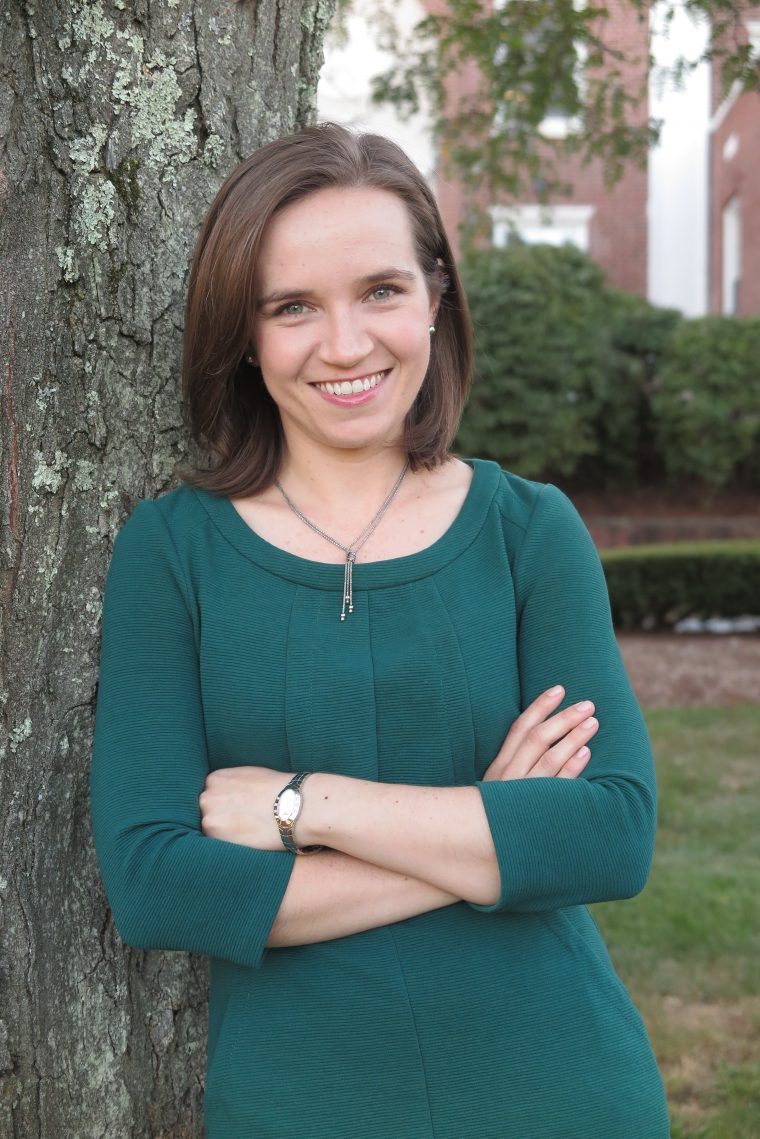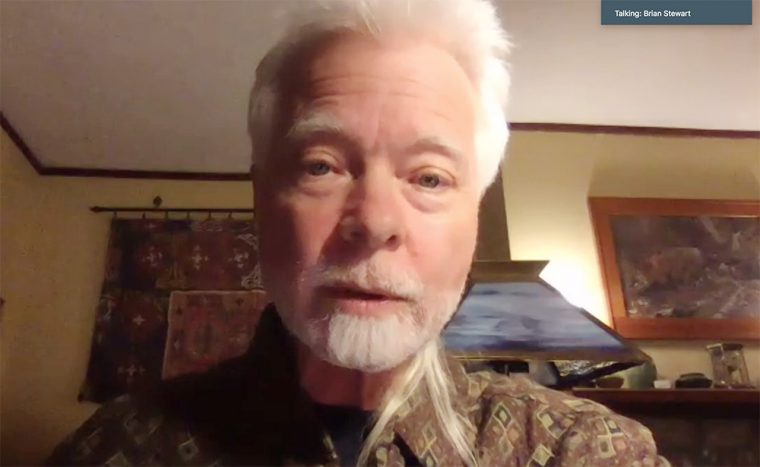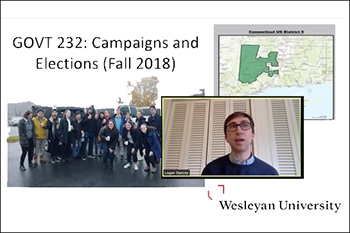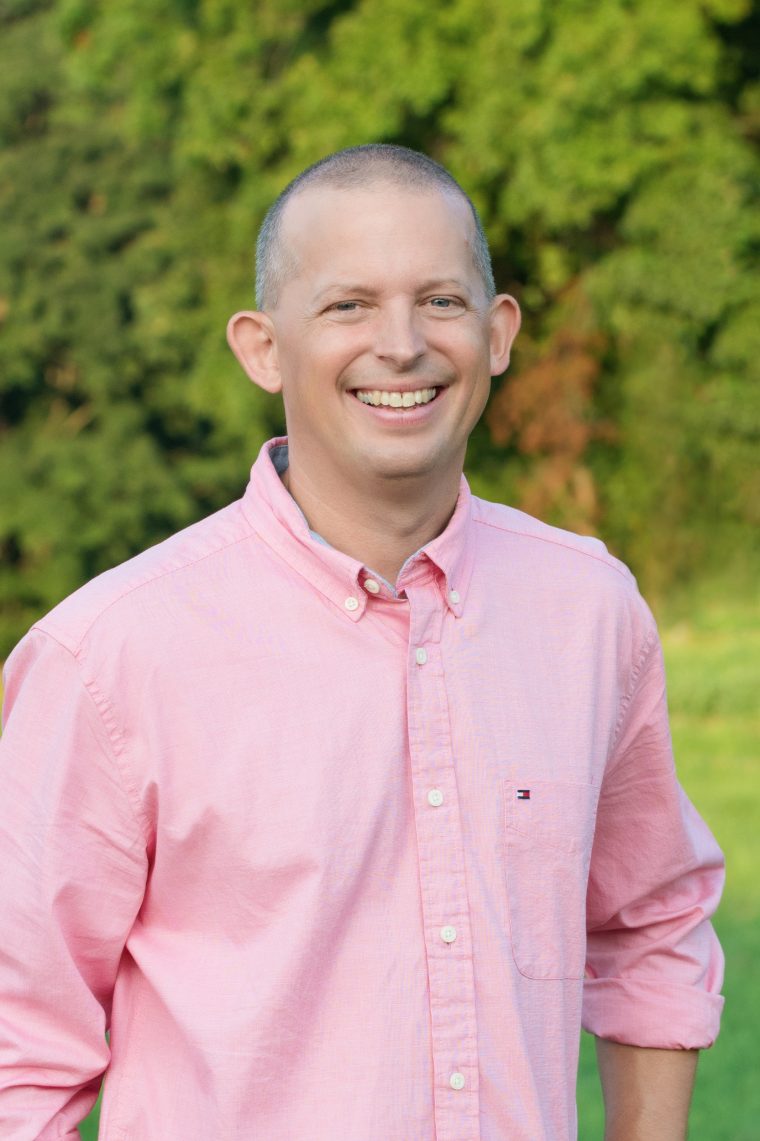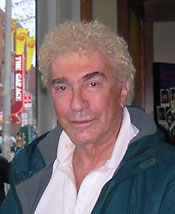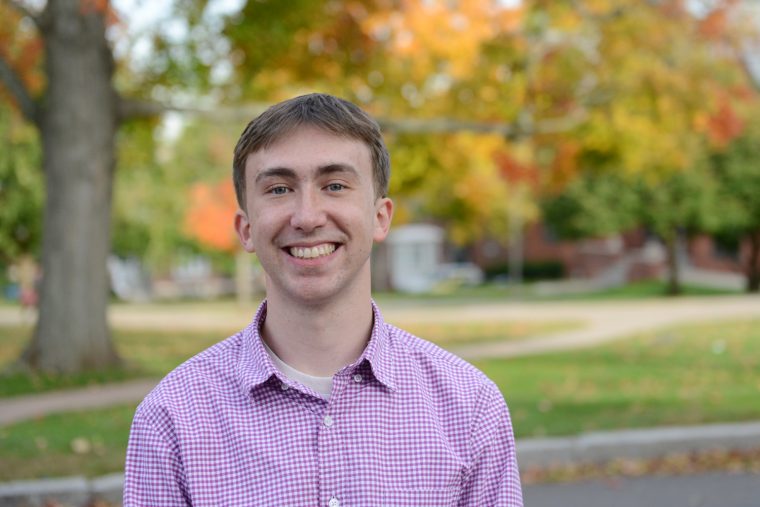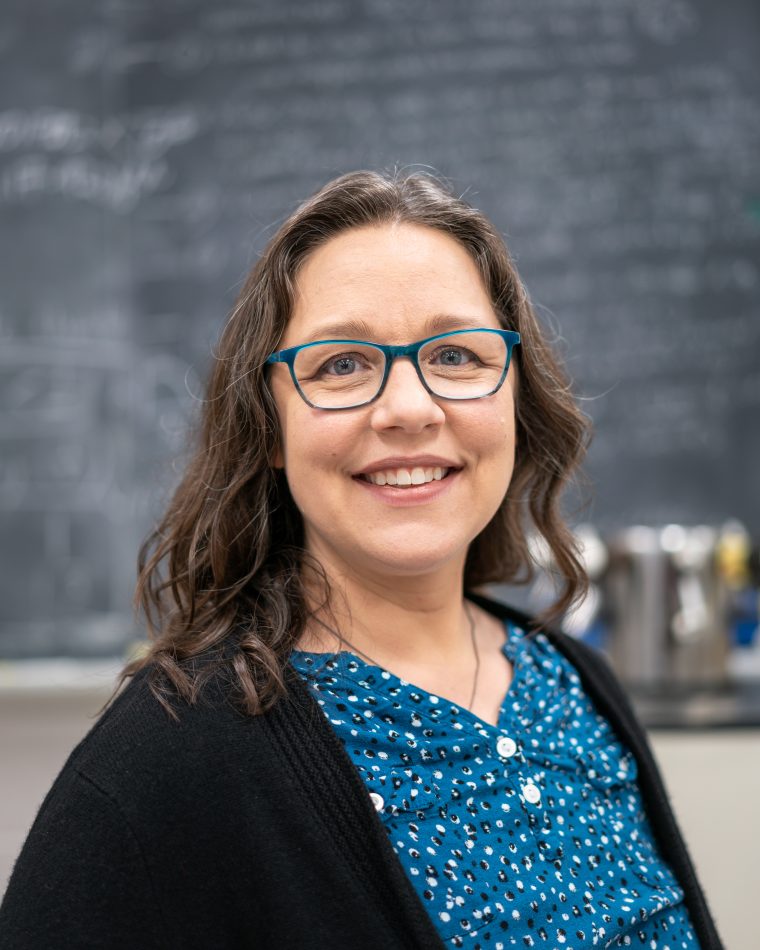Wesleyan in the News 1. Washington Post: "Biden Makes End Run Around Trump as the President Dominates the National Stage" Erika Franklin Fowler, associate professor of government and co-director of the Wesleyan Media Project, comments on Biden's unusual strategy during an unprecedented time for the 2020 presidential campaign. “There is not a ready off-the-shelf playbook for how you campaign in this environment if you are a nonincumbent, so that’s part of what you’re seeing,” she said. “We’re all being thrown into this new environment, where campaigns are going to need to reinvent, to some extent, how they go about things,…
Assistant Professor of Government Alyx Mark studies the American separation of powers system, access to justice, and Supreme Court decision-making. She was recently awarded a National Science Foundation (NSF) Rapid Response Research (RAPID) grant to study the response of state courts to the challenges posed by the coronavirus pandemic. Congratulations on receiving the NSF RAPID grant! Can you please explain how this opportunity came about? Near the beginning of the pandemic, NSF sent out a Dear Colleague letter soliciting project proposals related to COVID-19. When I read that letter, my first thought was that this was relegated to epidemiologists and…
Assistant Professor of Government Lindsay Dolan specializes in international political economy and comparative politics in developing countries. Her research and teaching interests include international organizations, foreign aid, and development. Together with her co-author Quynh Nguyen of Australian National University, she has been studying how COVID-19 is affecting public attitudes toward globalization. President Trump recently announced that he is suspending U.S. funding for the World Health Organization (WHO). Can you briefly explain the role of the WHO, particularly during a global health crisis, and what will be the implications of the U.S. cutting funding? Which countries or populations will be most…
On April 22, Professor of Physics Brian Stewart held his annual Earth Day Rant. This year's topic was "Bending the Curves: Coping with Crises from Car Crashes to Coronavirus to Climate Change." During his talk, Stewart discussed and compared how a car crash, storm, epidemic, and climate change vary in terms of mitigation, adaptation, perception, agency, cost to the United States, and deaths per 100,000 people. The current epidemic has cost the U.S. more than $2.5 trillion, whereas vehicle accidents amount to $277 billion per year (excluding indirect costs), and storms cause $30 billion per year in damages. All contribute…
Associate Professor of Government Logan Dancey foresees many important opportunities for students to get involved and make a difference with upcoming local elections this fall—and the Engage 2020 (E2020 initiative) will be a prime vehicle for that work. Dancey recently gave a presentation via Zoom video webinar to Wesleyan faculty and staff about his research on American electoral politics and his work with students on this topic. Featured as part of the regular staff luncheon series, Dancey’s talk was titled “Student-Centered Elections Research: From the Middletown Mayoral Race to E2020." (more…)
Steve Stemler, associate professor of psychology and co-coordinator of education studies, has spent two decades systematically studying the purposes of school. He is the co-author, together with Dr. Damian Bebell, of The School Mission Statement and maintains the web resource purposeofschool.com. He is the author of an op-ed recently published in The Hartford Courant that provides advice for parents who are now educating their children at home due to coronavirus-related school closures. You’ve done a good deal of research on the purpose of school, a topic on the minds of many parents these days as they’re getting an up-close look at…
Norman Shapiro, Distinguished Professor of Literary Translation and Poet in Residence, formerly professor of romance languages and literatures, died April 3 at the age of 89. Shapiro arrived at Wesleyan in 1960 after receiving his BA and MA from Harvard University, completing a Fulbright Fellowship at Université d'Aix-Marseille in France, and returning to Harvard for his PhD. He stepped down from regular duties in 2017 but continued in his roles as Distinguished Professor of Literary Translation and Poet in Residence. In addition to his classes in Romance languages and literatures, Shapiro also taught American Sign Language and served as the…
Professor of Psychology Scott Plous is a social psychologist whose research focuses on prejudice and discrimination, decision-making, and ethical issues relating to animals and the environment. He has a long-standing interest in web-based research and teaching, and has taught a Social Psychology massive open online course (MOOC) on the Coursera platform since July 2013. We spoke to him about what social psychology can teach us in these challenging times. What are you teaching this semester, and how have you adapted your course for distance learning? I’m teaching an advanced seminar on the Psychology of Prejudice and Discrimination. Because the class…
In July, three faculty will begin new appointments at Wesleyan. Katja Kolcio will succeed Peter Rutland as director of the Allbritton Center for the Study of Public Life; Stephanie Weiner will succeed Sean McCann as director of the Shapiro Center for Writing; and Krishna Winston will succeed David Beveridge and Alex Dupuy as director of the Wasch Center for Retired Faculty. Katja Kolcio, associate professor of dance, received certificates from Free Ukrainian University and from Kyiv Institute of Art and Culture; and her PhD from The Ohio State University. Her work specializes in the role of creative physical engagement in…
Associate Professor of Government Logan Dancey’s research and teaching interests include the United States Congress, campaigns and elections, and public opinion. We spoke to him about the government’s response to the coronavirus pandemic. As a scholar of legislative decision-making, can you describe how the workings of the United States Congress look different during a time of crisis? It’s still early, but the government’s response to the coronavirus pandemic shows that even this gridlocked and polarized Congress—which doesn’t seem to accomplish much in normal times—is still fairly quick to respond to crises. We’ve seen large bipartisan majorities agree on fairly large-scale…
Joy Cote PhD ’18, Cody Hecht '18, MA'19, and Erika Taylor, associate professor of chemistry, are the co-authors of a study that explores how opposite charges on our substrate and enzyme cause a protein to change shape when the substrate binds. The study, titled "Opposites Attract: Escherichia coli Heptosyltransferase I Conformational Changes Induced by Interactions between the Substrate and Positively Charged Residues," appears in the February 2020 issue of Biochemistry. "If you can imagine how the opposite charges of magnets are attracted toward each other, then you understand the results of this paper," Taylor explained. "The enzyme uses positively-charged amino…
Erika Taylor, associate professor of chemistry, is honored for being among the "Top 35 Women in Higher Education" in the March 20 issue of Diverse. Taylor joined the Wesleyan faculty in 2007 and teaches courses in the areas of organic chemistry, biochemistry, environmental chemistry, and bio-medicinal chemistry, among others. She's also associate professor, environmental studies, and associate professor, integrative sciences, and takes a multidisciplinary approach to investigating problems at the biological chemistry interface. Diverse acknowledged Taylor for "striv(ing) to find ways to exploit enzymes found in nature to perform reactions that can help advance the fields of chemistry and medicine."…



